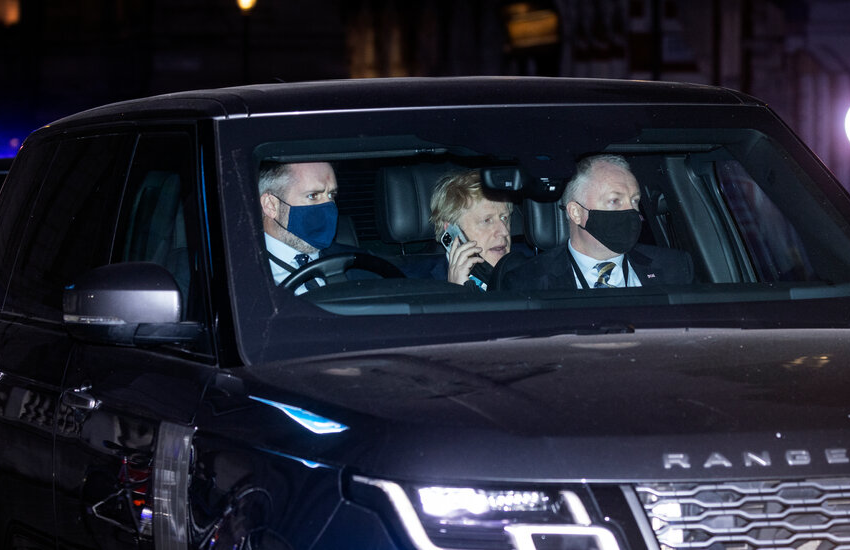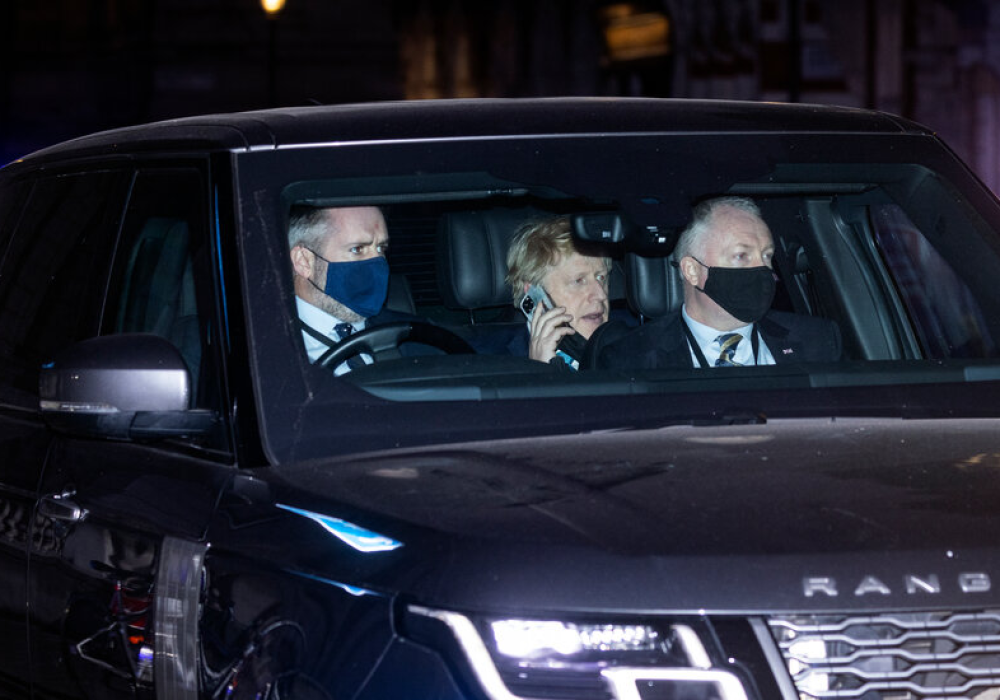LONDON — Just a week ago, Prime Minister Boris Johnson’s political survival looked very much in doubt, his party in revolt and the public angered over disclosures about parties at Downing Street that violated lockdown rules.
Now, Mr. Johnson appears to have won a reprieve — aided, paradoxically, by the British police opening an investigation of the allegations. The police’s involvement has derailed the publication of a full report on the parties, which many lawmakers have said could trigger a groundswell to oust Mr. Johnson.
On Friday, the police confirmed they had asked for critical details to be withheld from the eagerly anticipated report, which was compiled by a senior civil servant, Sue Gray. By scrubbing the most incriminating material, the report could give Mr. Johnson a chance to regroup rather than face a crippling no-confidence vote.
His stronger position, at the end of a murky, fevered week in British politics, has outraged opposition leaders and other critics. Some accused the police of an ill-timed intervention that allowed Mr. Johnson to escape judgment for flouting the rules he had imposed on others, as well as for dissembling about it afterward.
“Britain faces huge challenges as we emerge from the pandemic and it is offensive that the government’s sole focus is on cleaning up after themselves,” said the leader of the Labour Party, Keir Starmer. “The Gray report must be published in full as soon as possible and the police have to get on with their investigation.”
Still, Mr. Johnson faces a political landscape strewn with land mines. The Gray report, which is now expected early next week, could yet be damaging, even in a redacted form. And the police could impose fines on several people for breaching lockdown restrictions, including the prime minister himself.
Even a prolonged investigation would make it hard for Mr. Johnson to put the scandal behind him. His party’s poll numbers have swooned, while his own ratings have collapsed. If Conservative lawmakers fall short of the threshold of 54 dissidents necessary to call a no-confidence vote this time, they could do it again in May, after local elections, which will be a test of how much damage the Tories have suffered.
“It may have bought him some time, but my view is that the vote of confidence is coming,” said Philip Cowley, a professor of politics at Queen Mary, University of London. “We know that voters are volatile and can change their minds, but it would be unprecedented for someone to come back from ratings this low to then be successful electorally.”
In the short run, the biggest casualty of the murky maneuvering is the Metropolitan Police commissioner, Cressida Dick. After declining for weeks to investigate the reports of parties, her force abruptly announced on Tuesday that it had decided to open an investigation, just as Ms. Gray’s report was nearing completion and after its findings were shared with her.
That set off days of confusion about the timing and contents of the report, which Mr. Johnson had earlier promised to publish in full, soon after it was submitted.
On Tuesday, Downing Street said that parts of the report that treaded into areas under police investigation would be removed, potentially delaying its publication. But the British media then reported that the police did not think the document would prejudice their work, stirring speculation that it would still be published this week.
If that was true, Scotland Yard appeared to change its mind. On Thursday, Downing Street said that negotiations were underway between Ms. Gray’s team and the police over what could be included in the document without hampering police inquiries, as the wait for publication continued.
Newspapers have reported that a string of parties were held at Downing Street during lockdowns, some featuring music and late-night revelry. In one case, a junior staffer was reportedly dispatched to a store with a suitcase to fill with wine bottles. In another, staffers broke a swing set that Mr. Johnson had installed for his toddler son, Wilfred.
Across England and Wales, the police have issued more than 118,000 fixed penalty notices, which lead to fines, for breaches of coronavirus rules. Yet Downing Street, the epicenter of the party scandal, is one of the most heavily guarded buildings in the country, with dozens of police officers controlling security.
“Arguably all of this would have been avoided if police had done the sensible thing and begun investigating in December,” Adam Wagner, a lawyer and expert on the coronavirus rules, wrote on Twitter. “Now we are in public accountability limbo and there is a messy dynamic between the internal Gray report and police investigation.”
Understand Boris Johnson’s Recent Troubles
What’s at stake. The crisis has stoked speculations that the political future of Mr. Johnson might be at risk. Though few Conservatives in Parliament have publicly called on him to quit, if the investigation determines that he misled Parliament, it could cost him his job.
Though critics were quick to voice suspicions of collusion between the police and Downing Street, a more likely explanation is that the police were reluctant to get involved at an earlier point because of the troubled history of law enforcement investigations of politicians.
In 2006, the police launched an inquiry into whether the prime minister at the time, Tony Blair, had exchanged honors for political donations. That investigation ended in 2007 without any prosecutions.
The following year, the police raided the parliamentary office of Damian Green, a Conservative lawmaker, as part of an investigation into the leaking of official documents. Ms. Dick was herself involved in the inquiry, which drew criticism for its heavy-handed tactics.
In their statement on Friday, the police said, “For the events the Met is investigating, we asked for minimal reference to be made in the Cabinet Office report.” They said they had not asked for the publication of the report to be delayed nor for it to be scrubbed of details that were not under police investigation.
But as a practical matter, the request means the report will almost certainly not contain information about the most serious accusations about social gatherings violating lockdown restrictions. Opposition leaders pounced on the prospect of a delayed or heavily redacted report, arguing that it would amount to a whitewash.
“A stitch up between the Met leadership and Number 10 will damage our politics for generations and it looks like it is happening right in front of our eyes,” Ed Davey, leader of the Liberal Democrats, wrote on Twitter.
That perception could yet backfire on Mr. Johnson, analysts said, even given his winning electoral track record and his ability to bounce back from scandals and setbacks that would capsize an ordinary politician.
“It used to be said he was the Teflon prime minister to whom nothing stuck, but you can’t ignore the rules of political gravity indefinitely,” Professor Cowley said. “Eventually they are going to get you.”










